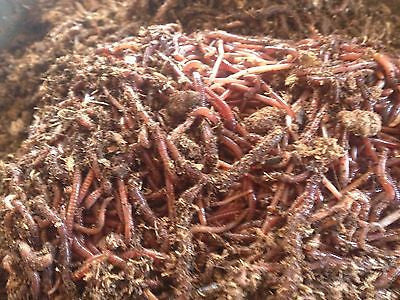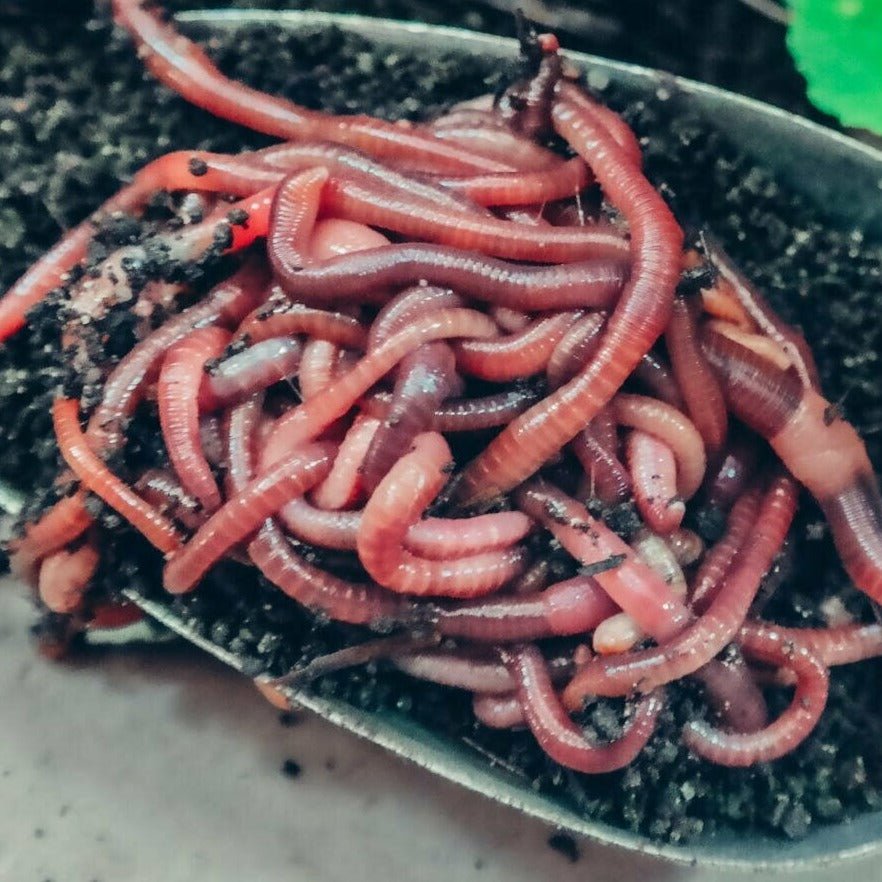Red wigglers: Improve composting
Red wigglers: Improve composting
Blog Article
Leading Advantages of Utilizing Red Wigglers for Vermiculture
The use of red wigglers, or Eisenia fetida, in vermiculture provides a number of compelling advantages that extend beyond simple composting. These organisms not only enhance soil fertility and structure but additionally facilitate a more effective decay process while actively taking part in waste decrease. Their presence dramatically improves microbial activity within the dirt, producing a flourishing ecosystem favorable to plant growth. As we discover these benefits better, it becomes apparent that the implications of incorporating red wigglers right into farming techniques are both extensive and far-ranging.

Boosted Soil Fertility
Boosted soil fertility is a vital element of sustainable agriculture, and red wigglers play a vital duty in this procedure. As a varieties of earthworm, red wigglers (Eisenia fetida) are especially effective in improving soil health via their all-natural behaviors and organic functions. They eat natural waste, breaking it down into nutrient-rich spreadings that substantially enhance soil framework and nutrient accessibility.
The castings generated by red wigglers are abundant in important nutrients, consisting of nitrogen, phosphorus, and potassium. These nutrients are readily obtainable to plants, advertising durable growth and higher returns. Furthermore, the presence of red wigglers in the dirt boosts microbial activity, more adding to nutrient biking and soil oygenation. This biological task promotes a more resistant soil ecological community, which can better withstand ecological stresses such as dry spell or pest problems.
Incorporating red wigglers right into agricultural methods not only increases dirt fertility but additionally reduces the requirement for synthetic plant foods, aligning with natural farming principles. Utilizing red wigglers in vermiculture represents a lasting strategy to dirt management, eventually sustaining the lasting viability of agricultural systems.
Fast Decay Process
The fast disintegration process promoted by red wigglers is an amazing sensation that significantly benefits both composting and dirt wellness. These earthworms, recognized scientifically as Eisenia fetida, play a vital duty in damaging down raw material effectively. By taking in kitchen area scraps, plant particles, and various other natural waste, red wigglers transform these materials into nutrient-rich castings at an accelerated rate.
The process begins as the worms ingest organic matter, where it is then digested in their specialized gizzards - red wigglers. This break down not only decreases the volume of waste however also improves the accessibility of necessary nutrients. As red wigglers eliminate spreadings, they launch a by-product that is including valuable bacteria, which additionally aids in decay and enriches the compost
(red worms)Additionally, their burrowing tasks freshen the garden compost, promoting ideal microbial task. This vibrant environment speeds up disintegration, leading to a quicker turnover of natural product right into usable compost. As a result, garden enthusiasts and farmers can enjoy quicker access to premium garden compost, therefore enhancing their ability to support plant growth and general dirt vigor. The efficiency of red wigglers in the decomposition process is thus important for lasting composting methods.
Enhanced Soil Structure

In addition, the castings produced by red wigglers are abundant in helpful bacteria and nutrients, which promote a healthy and balanced soil community. These spreadings enhance the soil's dampness retention capability, decreasing the demand for regular watering. As the raw material is broken down right into better particles, it raises the soil's accumulated stability, preventing erosion and compaction.
The visibility of red wigglers likewise fosters a diverse microbial neighborhood, which plays an essential role in vitamins and mineral cycling. This variety further improves soil fertility and durability, allowing it to sustain a variety of plant life.

Reduction of Waste
Vermiculture utilizing red wigglers plays an important duty in the reduction of waste, especially natural waste that would certainly or else finish up in reference land fills. The procedure of vermicomposting effectively transforms various types of organic materials, such as food scraps, yard waste, and paper products, into nutrient-rich vermicast. This not only draws away waste from land fills yet additionally minimizes the environmental effect connected with waste decay in these sites, which typically creates damaging greenhouse gases like methane.
By utilizing red wigglers, individuals and companies can handle their natural waste a lot more sustainably. These worms have an impressive capacity to eat considerable amounts of organic product, converting it into useful garden compost that can be made use of to improve dirt. This procedure not just lowers the quantity of waste yet additionally lengthens the life-span of land fills, eventually adding to throw away monitoring options.
Additionally, adopting vermiculture methods motivates a society of recycling and sustainability. As more people acknowledge the advantages of composting with red wigglers, the cumulative effect on waste reduction ends up being progressively considerable. In recap, utilizing red wigglers for vermiculture gives an efficient technique for reducing natural waste while enhancing ecological stewardship.
Boosted Microbial Activity
While taking part in vermicomposting, the existence of red wigglers significantly enhances microbial task within the composting system. These earthworms produce a helpful atmosphere for useful microorganisms by freshening the garden compost and breaking down organic product. As the worms take in food scraps and other natural waste, they secrete nutrient-rich castings, which act as an environment and food source for varied microbial areas.
The boosted microbial activity promotes the fast disintegration of raw material, leading to extra reliable nutrition cycling. This procedure not only increases garden compost maturation but additionally enhances the overall top quality of the end product. Bacteria, such as microorganisms and fungis, flourish in the worm-rich environment, bring about a higher focus of vital nutrients like nitrogen, phosphorus, and potassium in the compost.
Additionally, the synergistic partnership between red wigglers and germs adds to virus suppression and improves soil health and wellness. By fostering a durable microbial populace, vermicomposting with red wigglers promotes biodiversity in the garden compost, ultimately causing richer, healthier soil for plant development. Hence, the function of red wigglers in raising microbial task is crucial for successful and lasting vermiculture practices.
Verdict
In summary, the use of red wigglers in vermiculture supplies various benefits, including improved dirt fertility, efficient decay of raw material, and improved soil framework. Their special burrowing habits not just promotes much better water retention however additionally aids in the reduction of waste, adding to lasting waste management methods. In addition, the increased microbial activity promoted by their spreadings sustains a flourishing environment, inevitably leading to healthier plants and more resistant farming systems.
Report this page